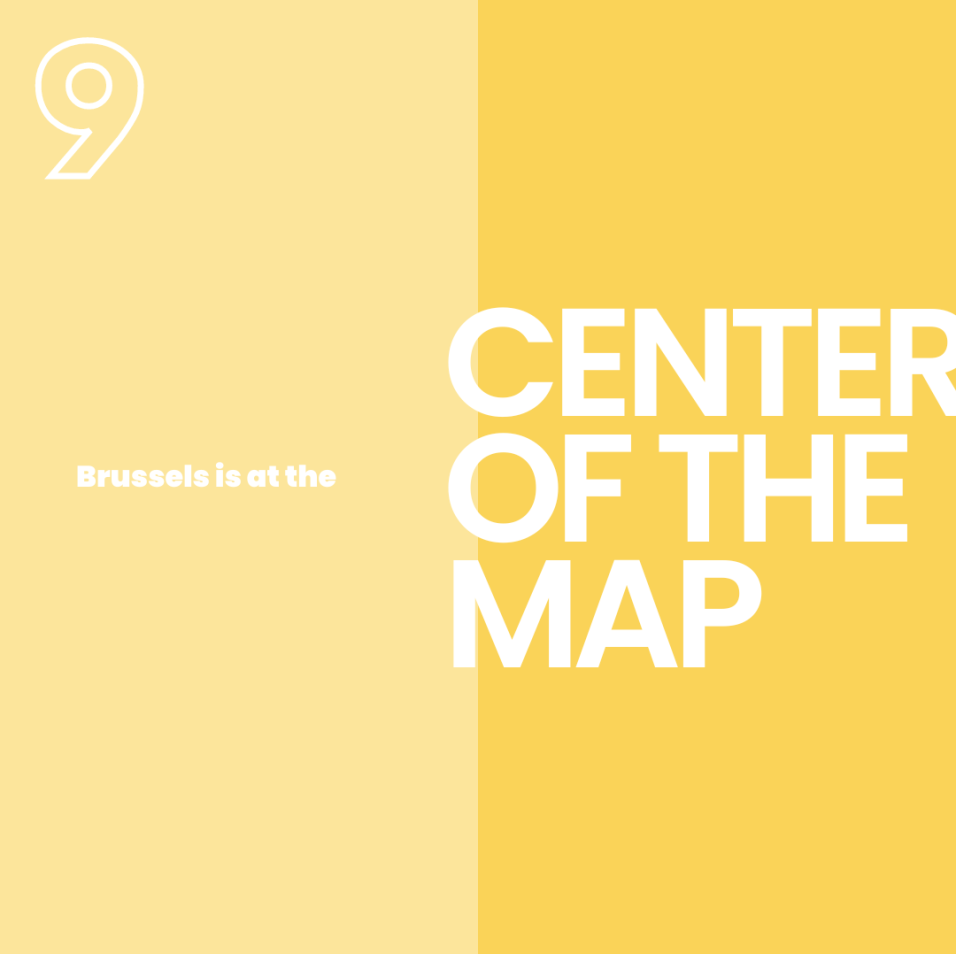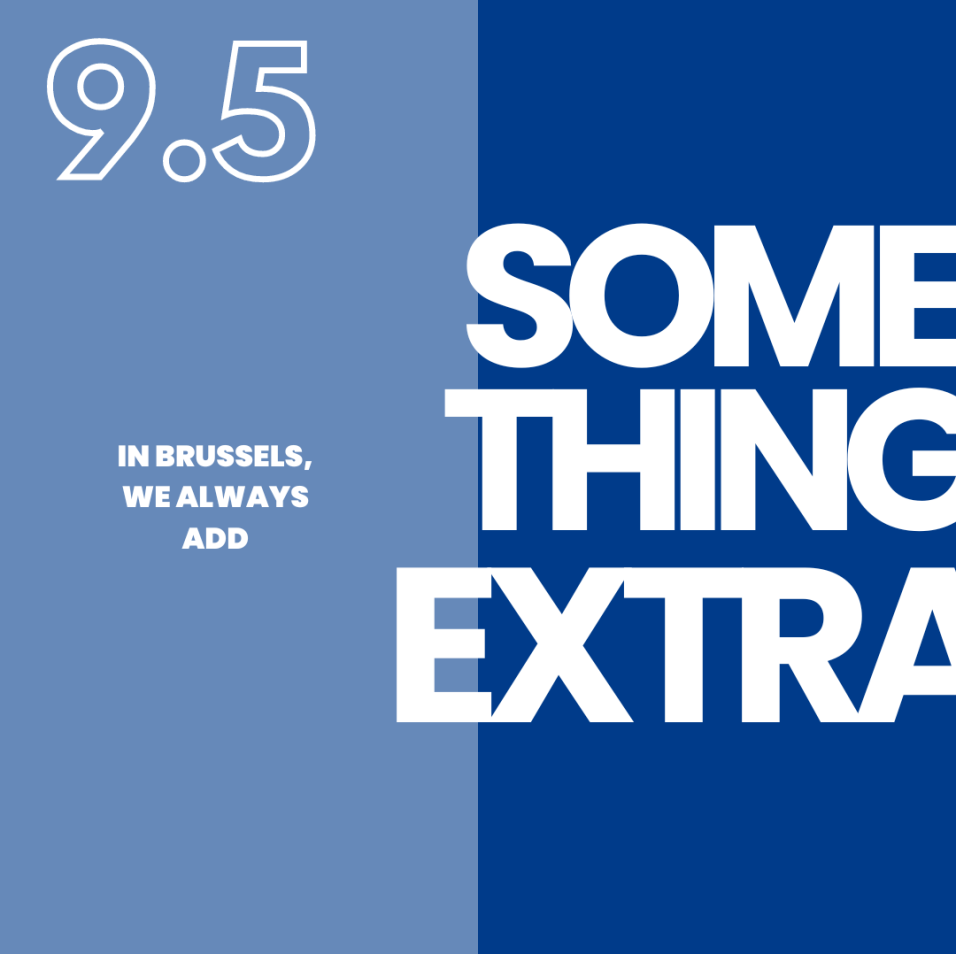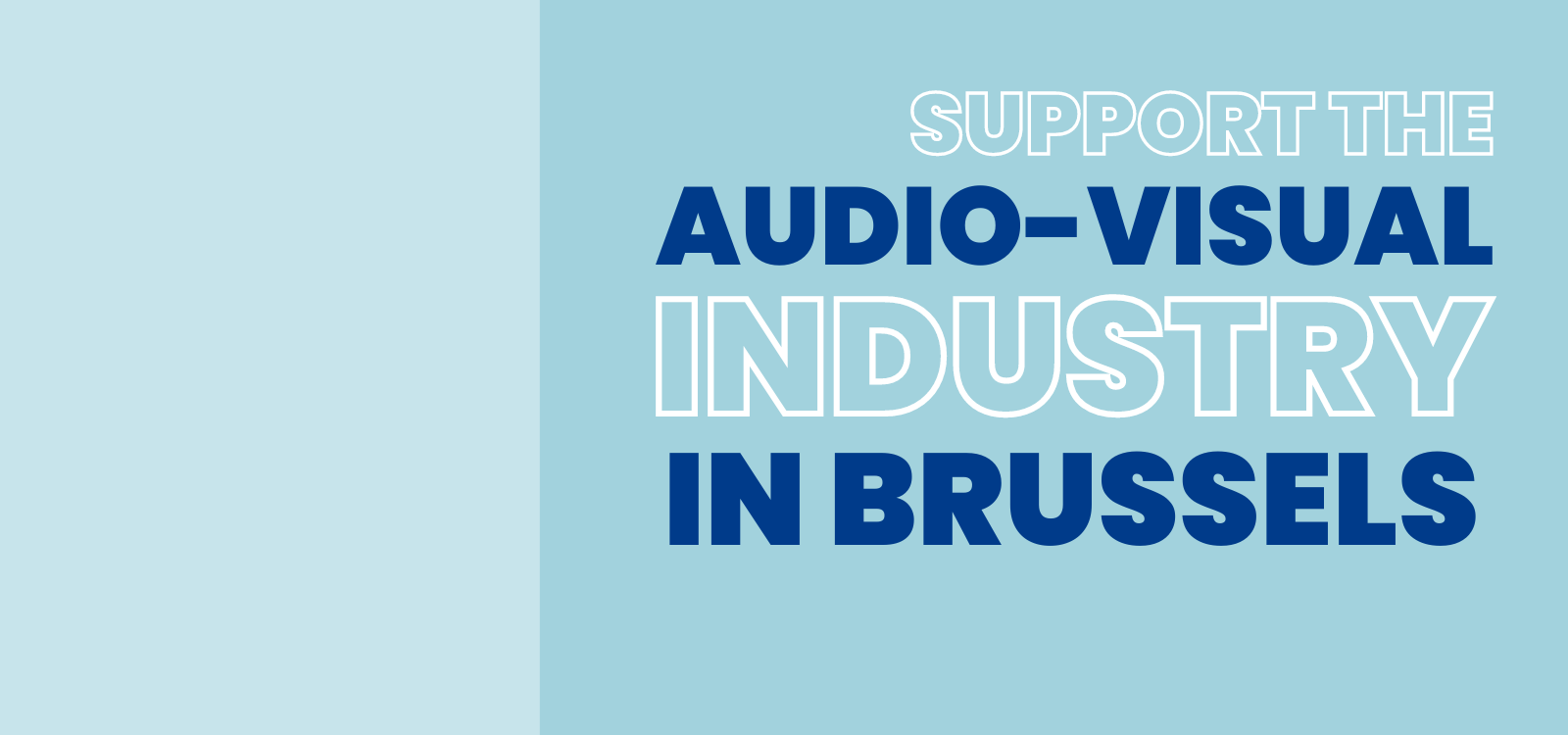9.5 Reasons to support the audiovisual sector in Brussels
At the heart of priority strategies for the economic development and outreach of the Brussels-Capital Region, support for the audiovisual sector is a major issue in regional policies. Since its creation in 2016, screen.brussels has been investing in projects of all types (feature films, series, animation, documentaries, audio formats, special formats...) and thus helping to structure a dynamic creative and cultural industry, and the many people and companies that contribute to it every day. The result is that Brussels' place on the European audiovisual map - and its image - are strengthened. Here are 9.5 reasons to support this sector:
Return on investment
Let's face it, it's a (small) investment that's paying off (big time) for the economy and employment in Brussels. Since 2016, it has been calculated that every euro invested in the audiovisual sector by screen.brussels has yielded €9.5 in direct expenditure: in salaries and order books for specialist companies in the Brussels-Capital Region. In other words, €264,592,651 of return for €27,903,700 invested. These amounts are calculated to the nearest Euro on the basis of supporting invoices (rounded off here).
And the requests are not drying up! Indeed, as a capital city, Brussels is home to many companies and talents in the sector. As a result, screen.brussels' investment remains in high demand, and the selection rate since 2016 has hovered around 45% of projects submitted. This means a shortfall that can rise to over €200,000,000 depending on projections!
Where does the money go?
It is estimated that a (very) large part of this investment goes directly to the salaries of people working in the industry. In fact, 50% of the cost price of a shoot is devoted to salaries, a figure that rises to 70-80% for the post-production and animation sectors! What's more, in projects supported by screen.brussels, 70% of eligible expenses are salaries.
If we look at this in terms of the Brussels-Capital Region budget, it helps to create wealth: 36% of revenue comes from contributions to regional personal income tax, 20% from registration fees (in the case of property purchases by people settled in Brussels) and 9.7% from payment of property tax. Finally, specialized companies also contribute to regional and municipal taxes.
And there's more to it
The economic spin-offs extend beyond the audiovisual sector alone. In addition to direct spending on salaries and companies working on supported projects, a large number of companies and people also benefit indirectly from the location of films, series, documentaries, animations etc. in Brussels. This is particularly true in the HoReCa sector - thanks to the large number of film shoots carried out throughout the Region - as well as in the legal, banking and insurance sectors.
Who does it affect?
The audiovisual sector represents some 13,000 people and 2,800 companies (if we also include media and marketing in the broader sense). These are the findings of the latest statistics compiled by hub.brussels, the Brussels-Capital Region's entrepreneurship support agency.
Since its creation, for example, screen.brussels has noted that over 225 companies directly linked to the sector have been created and/or (re)located in the Brussels-Capital Region.
In all, these individuals and companies contribute to the economy of the Brussels-Capital Region, generating over €850,000,000/year in net added value. The audiovisual sector is thus the leading contributor (26%) to the added value of the Region's creative and cultural industries.
Who's watching?
We've lost count of the number of viewer successes achieved by the projects we support, of all types. Belgian series, as we know, are popular on both sides of the linguistic border and beyond: Undercover seasons 2 and 3, for example, drew 6.7 million viewers in the first half of 2023, Ennemi Public 1.4 million in the same period, and Des Gens bien 1.1 million on its first night of broadcast in 2022! The documentary Une année avec le Roi (A Year with the King), which attracted 1.3 million viewers across Belgium, also succeeded in surpassing the million mark.
How do these projects travel?
Every year, projects of all types travel to festivals and markets all over the world, winning numerous awards and official selections. Feature films, for example, such as Delphine Girard's Quitter la Nuit, Audience Award at the Venice Film Festival, Baloji's Augure, New Voice Award 2023 at the Cannes Film Festival, Emmanuelle Nicot's Dalva, Prix de la Révélation, Prix Fipreci 2022 at Cannes Critics' Week, Tori et Lokita, by Jean-Pierre and Luc Dardenne, Prix spécial 2022 at the 75th Cannes Film Festival, Le Paradis by Zéno Graton, world premiere 2023 at the Berlinale. In animation, Interdit aux chiens et aux Italiens, by Alain Ughetto, Prix du Jury and Prix Fondation Gan at the 2022 Annecy Festival, Sirocco ou le royaume des courants-d'air by Benoît Chieux and The Inseparables, by Jérémie Degruson, in official selection at the 2023 Annecy Festival.
For a fuller overview of our awards and selections, please refer to our annual reports.
Where do these investments come from?
Regional investment in audiovisual projects makes it possible to localize in Brussels expenditure generated by funding - public and private - generated by contributions from outside the Region: federal tax-shelter, Community cultural funds (VAF and CCA), foreign investment (co-productions, sales and distribution), Belgian and foreign platforms and broadcasting: 90% of projects supported are co-productions, Creative Europe and Eurimages European funds, etc. And these budgets are increasing thanks to contributions from outside operators targeting the Belgian market (European SMA directive, for example).


Brussels, Brussels, Brussels
Investing in the audiovisual sector is also an investment in promoting Brussels and its identity. The 300 or so film projects, series, animations and documentaries we support contribute to the image and reputation of the Brussels-Capital Region, which appears not only in the credits but also in the images of an increasing number of projects. In fact, Brussels is becoming the setting for stories, and even a character under the pen of scriptwriters, and Brussels shots travel to the four corners of the globe.
Allowing the Brussels Region to make a significant contribution to project financing means that production companies can retain majority control over the project, or at least make them decision-makers rather than service providers. This helps put Brussels on the map of the European audiovisual industry as a major player.
At the center of the map
Thanks to its geographical position and history, Brussels has a number of key strategic assets: a multicultural, international city-region, a European capital and a center of strategic decision-making - with the potential to develop films and series in places of power (soft power), and internationally renowned film schools and professionals. Strengthening support for the sector means consolidating Brussels' place at the center of the European audiovisual map.


Always add something extra
In Brussels, we don't really do anything like anywhere else. We do things our own way, and always add something extra. That's what's clear from the testimonials we've received on our many international co-productions: know-how combined with kindness and commitment to our projects. It's not in our DNA to stop where we're expected.
Brussels, multicultural, international, hyper-connected and a strategic decision-making center, is a platform where you're sure to find what you're looking for, with the added surprise of meeting the people of Brussels.
